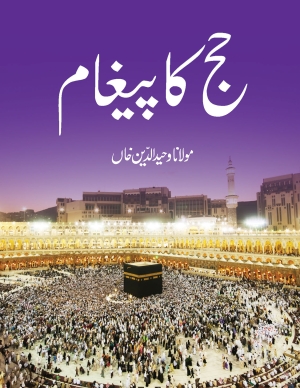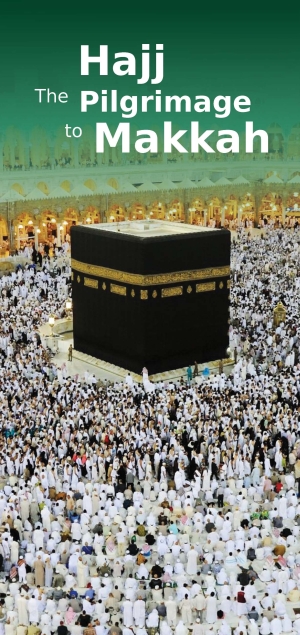The Prophet’s Last Sermon (Khutbah al-Hajjat al-Wida) was to instil in his Companions the spirit to undertake planning for dawah work. Human beings need guidance to make their lives successful in this world and the Hereafter. Therefore, God sent prophets and messengers to guide people on the path of spirituality and wisdom. The Prophet’s Last Sermon marked the end of an era and the beginning of a new one; The culture of fighting and bloodshed, prevalent in the tribal age, was to be wholly abandoned. Now, a new era was to begin in which believers were to strive to impart the message of God to people. During his final Hajj, the Prophet, while addressing his Companions, said:
“O People! All those who are listening to me should pass on my words to those who are not present. No prophet or messenger will come after me, and no new faith (nation) will be born after you.” (Musnad al-Bazzar, Hadith No. 6135)
Therefore, those who return from the performance of Hajj must be imbued with the spirit to act on this prophetic advice and should henceforth make it their goal to devote their lives to God’s cause so that they can fulfil the prophetic mission of having the word of God reach every home on the planet.
Featured Articles
Featured Videos
FAQs
After having consolidated the power of Islam in Arabia, the Prophet set out to perform Hajjatul wada‘, his Farewell Pilgrimage. It was the last year of his life. He left Madinah for Makkah accompanied by Madinan Muslims. When the news spread that the Prophet was going to perform the pilgrimage, various tribes living in Arabia began pouring into Makkah.
Therefore when the Prophet of Islam performed his first as well as his last pilgrimage, he was joined by nearly 125,000 Muslims. During this pilgrimage, the revelations about the rules of the hajj were given to him. These are followed by all Muslims to this day.
When the Prophet arrived at Mount Arafat, he imparted some teachings to the people present on that occasion. These are preserved in the form of the “Final Sermon.”
During the Sermon of Arafat the last passage of the Quran was revealed:
“Today I have completed your religion for you, and completed My blessings upon you. I have chosen for you Islam as your religion.” (Al Ma’idah, 5:3)
This proved to be his last visit, that is why it came to be called the “Farewell Pilgrimage”. Only three months after his return to Madinah, the Prophet Muhammad ﷺ fell ill and, with the consent of all of his wives, stayed in the house of Aishah. He had fever and headache. He remained ill for about two weeks and breathed his last on 12 Rabiul Awwal, 632 A.D. He continued leading prayers till he became too weak to go to the mosque. But before his death, he said his last prayer in the Prophet’s Mosque and made Abu Bakr, his closest companion, the Imam of this prayer.
The Prophet died in the room attached to the Prophet’s Mosque. He was buried in the same place. Later when Abu Bakr and Umar died, they were also buried to the right and left side of the Prophet.
Source: The Life of Prophet Muhammad
The focus of the Prophet’s Last Sermon (Khutbah al-Hajjat al-Wida) was to instill in his Companions the spirit to undertake planning for dawah work. Human beings need guidance to make their lives successful in this world and the Hereafter. Prophets and messengers were sent by God for the purpose of guiding people on the path of spirituality and wisdom. The Prophet’s Last Sermon marked the end of an era and the beginning of a new one; The culture of fighting and bloodshed, which was prevalent in the tribal age, was to be completely abandoned. Now, a new era was to begin in which believers were to strive to impart the message of God to people. During his final Hajj, the Prophet while addressing his Companions said:
“O People! No prophet or messenger will come after me and no new faith will be born. All those who are listening to me should pass on my words to those who are not present.” (Ibn Hisham)
Therefore, those who return from performance of Hajj must be imbued with the spirit to act on this prophetic advice and should henceforth make it their goal to devote their lives to God’s cause so that they can fulfil the prophetic mission of having the word of God reach every home on the planet.
Source: Spirit of Islam September 2018
The Prophet had performed Hajj towards the end of his life. On this occasion, all of the Prophet’s Companions gathered in the plain of Arafat, which is 20 kilometres east of Makkah.
Here the Prophet delivered a sermon while being mounted on his camel. This sermon is famously known as Khutbah Hajjatul Wida, or ‘The Sermon of the Farewell Pilgrimage’.
At this juncture, the Prophet addressed his contemporary believers thus: “God has sent me for all mankind, so convey [my message] on my behalf.” When the Prophet issued this call, the Companions went forward in whichever directions their horses were facing, so that they could reach out to those people who were still unaware of the message of God brought by the Prophet. The efforts of the Companions helped in conveying the teachings of Islam to the inhabited world of that time.
Source: Spirit of Islam September 2017









